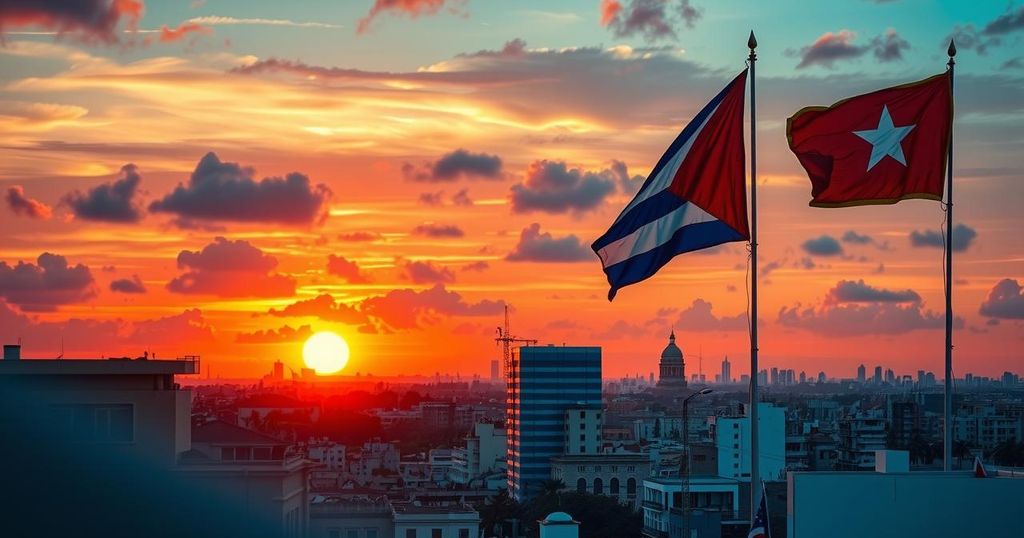Trump Administration’s Proposed Sanctions on Cuba: Implications and Reactions

The Trump administration is considering increasing sanctions on Cuba to encourage regime change, viewing the current regime as vulnerable. Officials suggest these sanctions may severely affect Cuban citizens, particularly in terms of remittances and humanitarian aid. Enhanced travel restrictions might also impinge upon ordinary families, further complicating their situation amidst ongoing economic decline.
The Trump administration is poised to intensify sanctions on Cuba as part of a strategy aimed at fostering regime change. This initiative is perceived as a pivotal chance to stimulate political reform within Cuba, particularly as the current regime, led by 94-year-old Raul Castro, faces unprecedented economic struggles.
Mauricio Claver-Carone, the special envoy for Latin America, stated that the Cuban government is experiencing its most vulnerable phase, suggesting that the pervasive desire for change among the Cuban populace is apparent. He indicated that government officials recognize the inevitability of transformation in the current political landscape.
A recent report highlights that the administration’s prospective sanctions are modeled after those imposed on Venezuela. Officials are aiming to amend the long-standing embargo, addressing existing loopholes that have hampered its effectiveness. Claver-Carone emphasized that existing tools used against Cuba are outdated and require updating to make a significant impact.
The anticipated sanctions are likely to target remittances and travel, both crucial for many Cubans. The government’s initiative, which sells necessities in dollar stores while providing meager salaries in pesos, has led to remittances from abroad serving as vital support for Cuban families. Recent actions by Secretary of State Marco Rubio aim to restrict another Cuban military-controlled organization from managing remittances, further impacting the economic situation.
The administration’s sweeping restrictions may also obstruct humanitarian aid efforts by organizations and non-profits operating in Cuba. In light of deteriorating living conditions, individual donations to support Cubans have noticeably increased, indicating a significant need for continued assistance despite government challenges.
Concerns regarding the potential adverse effects of these sanctions on Cuban families have been raised. Ricardo Herrero, from the Cuba Study Group, warned that cutting off support would not result in regime change but would instead exacerbate the challenges faced by ordinary Cubans. He emphasized the risk of unintended hardship on innocent families rather than the ruling elite.
Acknowledging the potential repercussions for Cubans, Claver-Carone indicated that the enforcement of these measures could lead to “short-term pain” as the administration prepares to escalate sanctions. He further suggested a parallel between current Cuban strategies and those employed by Venezuelan leadership to alleviate domestic pressures by facilitating emigration.
By considering immediate sacrifices, the administration believes it can avert prolonged exile for the Cuban community, positing that decisive action is necessary to influence change within the regime.
In summary, the Trump administration’s contemplated sanctions on Cuba signal a strategic effort to provoke political transformation on the island during a time of perceived vulnerability for the Castro regime. While the potential benefits for regime change are discussed, significant concern arises regarding the humanitarian consequences of such measures on Cuban citizens, particularly regarding remittances and aid channels.
Original Source: www.inkl.com








